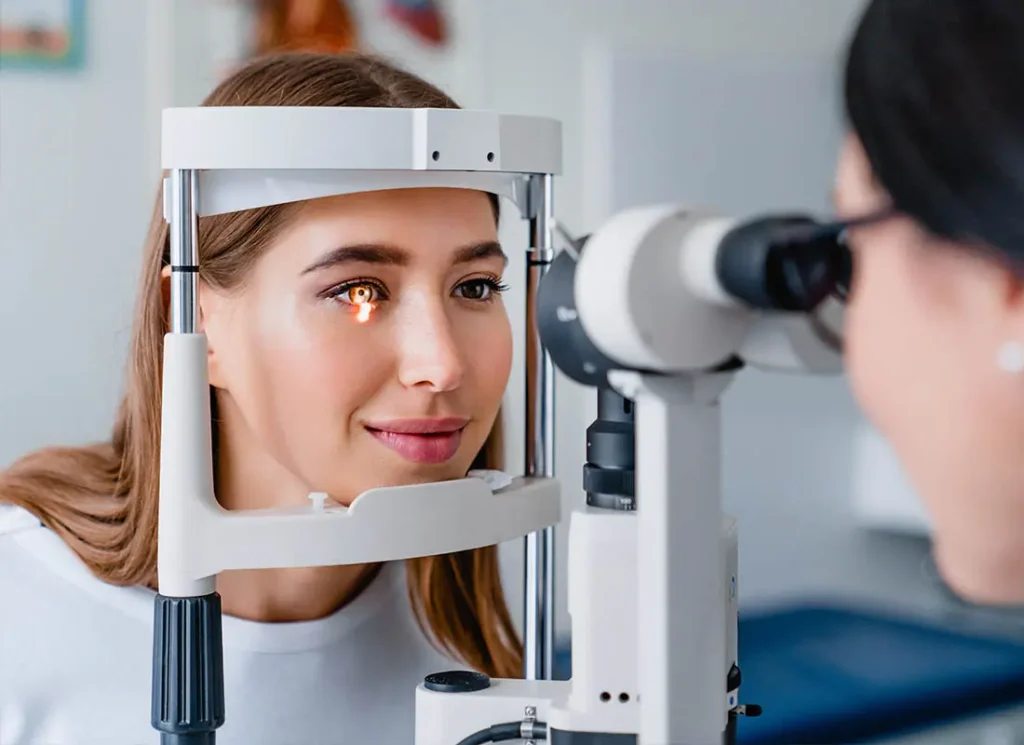Finding the right eye doctor can make a significant difference in maintaining your vision health and addressing any eye-related concerns. Whether you need routine eye care or specialized treatment, selecting a qualified professional requires careful evaluation of their credentials, experience, and services offered. Here is more information on practical steps to help you locate and choose a doctor who meets your specific needs:
Research Credentials
Start by understanding the different types of eye doctor specialists available. Ophthalmologists are medical doctors who specialize in comprehensive eye and vision care, including surgery. Optometrists are healthcare professionals who provide primary vision care, including eye exams and vision correction. Opticians fit and dispense eyewear based on prescriptions from ophthalmologists or optometrists.
Verify any potential doctor’s credentials through your state’s medical board website or professional licensing board. Look for board certification in ophthalmology or optometry, which indicates the doctor has completed specialized training and passed rigorous examinations. Check for any disciplinary actions or complaints filed against the practitioner.
Review the doctor’s educational background and training. Medical schools, residency programs, and fellowship training can provide insight into their level of expertise. Fellowship training indicates additional specialization in areas such as retinal diseases, glaucoma, or pediatric eye care.
Evaluate Practical Factors
Location and accessibility play significant roles in your ongoing eye care. Choose a practice that you can reach conveniently for regular appointments and emergency visits. Review the office hours to determine if they align with your schedule.
Verify insurance coverage and payment options. Contact your insurance provider to confirm which eye doctors in your area accept your plan. coverage for routine eye exams, specialized procedures, and eyewear. Inquire about payment plans or financing options if needed. Modern diagnostic equipment can improve the accuracy of eye exams and enable early detection of eye diseases. Advanced surgical equipment may be necessary for certain procedures.
Make an Informed Decision
Schedule a consultation or initial appointment to evaluate the doctor’s communication style and approach to patient care. A qualified eye doctor should explain your condition clearly, answer your questions thoroughly, and discuss treatment options comprehensively. Observe the staff’s professionalism and the office environment. Well-trained staff and an organized, clean facility often reflect the quality of care provided.
Ask about the doctor’s experience with your specific condition or treatment needs. Inquire about success rates for procedures you may need and request information about potential risks and alternatives. Review the practice’s policies regarding follow-up care, emergency situations, and referrals to specialists when needed. A comprehensive approach to eye care includes ongoing monitoring and coordination with other healthcare providers when necessary.
Find an Eye Doctor
Selecting a qualified eye doctor requires thorough research of credentials and specializations, careful evaluation of practical factors like location and insurance coverage, and an informed decision based on your specific needs. Take time to verify licensing, assess the practice environment, and communicate directly with potential providers. Your vision health deserves professional care from a qualified practitioner who can provide both routine maintenance and specialized treatment when needed. By following these structured steps, you can locate an eye doctor who will serve as a reliable partner in maintaining your eye health for years to come.

